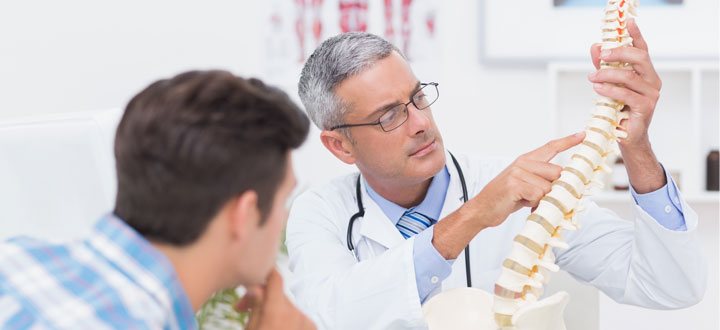HGH Benefits for Joints

Getting older does not have to mean aches, pains, and stiffness. The body does not have to break down just because decades pass. It is possible to maintain freedom of movement when human growth hormone levels remain at a viable state.
The HGH benefits for joints provide an improved range of motion, flexibility, and mobility to adults who want to be able to lead an active and productive life without pain.
Arthritis can take away many of life’s pleasures. When you can no longer lift a golf club or tennis racket, sit on the floor with your children or grandchildren, or do simple tasks around the house, it is time to find out if growth hormone deficiency is the cause.
As time passes, the production of growth hormone slows down. With that, a decline in cellular regeneration slows tissue and cartilage regrowth. Remember, the cells in the body continue to die off and require new cells to take their place. If low HGH levels reduce the amount of new cells, breakdown begins to occur.
Looking at how HGH effects on joints restore the body’s ability to improve cartilage and tissue regrowth, we can see that the overall structural integrity of the body will heal and strengthen.
What HGH Can Do for Arthritis
Cellular regeneration is the crucial function of HGH for arthritis. With its release into the bloodstream, HGH searches out its receptor cells on tissues throughout the body. One such area is the liver, where HGH delivers a message that influences insulin growth factor 1 production. Together, IGF-1 and HGH stimulate the growth of chondrocyte (cartilage) and osteoblasts (bone cells).
The resulting HGH effects on joints helps to repair the arthritis-affected cartilage for improved range of motion and decreased pain. The thickening cartilage helps to cushion the joints.
Here are the two forms of arthritis that HGH can impact:
- Osteoarthritis
Osteoarthritis is the most common form of the degenerative joint disease.
Osteoarthritis affects only the impacted joints.
This form of arthritis results from normal wear and tear on joints over time. Age is the main influencer of osteoarthritis, although an infection or trauma could also impact this condition.
As tissues and cartilage decline, they rub together causing a general weakening that can lead to loss of flexibility and movement, along with pain.
HGH improves cellular regeneration of affected tissues for increased mobility and pain reduction.
- Rheumatoid Arthritis

Unlike osteoarthritis that occurs with age, rheumatoid arthritis is an autoimmune disease where the body begins to attack itself. In addition to the affected joints, rheumatoid arthritis can spread to the eyes, muscles, and lungs.
Growth hormone deficiency furthers the breakdown of affected tissues and muscles.
HGH therapy helps to strengthen and heal the affected tissues, improving the body’s structural integrity and reducing overall pain.
The HGH benefits for joints do not end with the cartilage improvement from cellular regeneration. Many people dealing with human growth hormone deficiency find themselves storing fat at an increased rate. This weight gain puts additional stress on already weakened joints, further decreasing mobility and increasing pain.
HGH stimulates the body’s metabolic processes to facilitate the conversion of food into fuel and stored fat into energy. With the loss of weight that often accompanies HGH therapy, a person will lighten the load on the joints as they begin to heal.
Kingsberg Medical is a national provider of hormone replacement therapy to adults over thirty years of age. We offer confidential consultations, local blood testing, superior service, and affordable treatment options. Contact us today for a complimentary consultation with a hormone specialist.
Brian Leeber



















